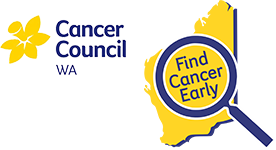Personal sun safety message shared
Cancer can affect anybody
This article was written by Eliza Wynn and was published in the The Avon Valley Advocate on 23 October 2019
Cancer Council WA has launched a confronting new digital SunSmart campaign to coincide with October’s Safe Work month, urging outdoor workers to use sun protection to reduce their risk of skin cancer.
Wheatbelt regional education officer Melissa Pickering,said for many outdoor workers, sun protection and self-examining skin was not seen as a priority.
“Outdoor workers receive up to 10 times more exposure to ultraviolet (UV) radiation than indoor workers, so their lifetime risk of skin cancer is alarmingly high,” Ms Pickering said.
“We are hoping this campaign will be a wake-up call for outdoor workers who might be safety conscious, but not taking care of their skin. Sun protection needs to become as automatic as putting on a seatbelt.”
Geraldton fi-fo worker Quinten Booysen knows only too well the dangers associated with too much exposure to the sun.
In 2016, Mr Booysen’s wife noticed an unusual spot on his back.
It was tiny and dark with an asymmetrical border. She encouraged him to get it checked out though he didn’t want to.
Eventually after a month he agreed and got the spot checked out. Mr Booysen had the spot removed and was told it was a melanoma.
“People think skin cancer is for old people but it can affect anybody,” he said.
“Go and get it checked out.
“Spend the time and go do it.
“Nobody is too busy”.
In Australia around 95 per cent of melanomas and 99 per cent of non-melanoma skin cancers are caused by over exposure to UV radiation.
Around 200 melanomas and 34,000 non-melanoma skin cancers each year can be attributed to outdoor work.
Skin cancer is remarkably common, with two in three Australians estimated to develop the condition before the age of 70.
In Western Australia, melanoma is the third most common cancer for both men and women while skin cancer claims the lives of around 200 residents each year.
Ms Pickering said being SunSmart was a simple and effective way of reducing your risk of developing skin cancer and most skin cancers could be treated if found early.
“Slip on protective clothing, slap on a broad-brimmed hat, slop on sunscreen, seek shade and slide on sunglasses,” she said.
